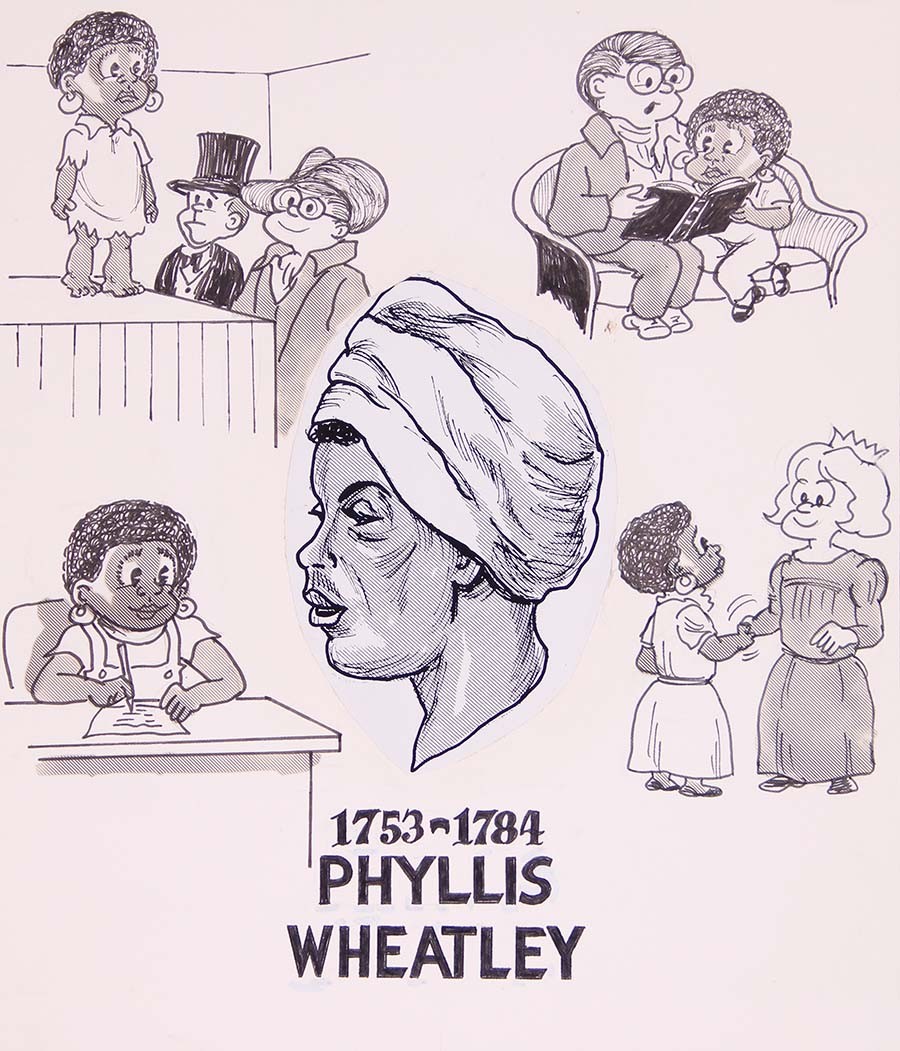
©Morrie Turner
In 1761, a young girl from West Africa was sold into slavery to John Wheatley in Boston, Massachusetts. Wheatley and his wife, Susanna, were fond of young Phillis Wheatley (1753-1784), as she was named, and began instructing her to read and write; she eventually mastered Greek and Latin. From her lessons, she was able to translate the writings of the Roman poet Ovid. Expressing an interest in poetry, Wheatley began publishing her poems and in 1768 published her best-known work, the autobiographical poem, On Being Brought from Africa to America.
Her first book, Poems on Various Subjects, Religious and Moral, was published five years later, and soon after, she was given her freedom. Enduring through an ill-fated marriage and the deaths of two young children, Wheatley was forced to perform menial labor, though she continued to write poetry. On December 5, 1874, she died penniless; her third child passed away later that same day. In 1974, UMass Boston honored Wheatley with a new building they named Wheatley Hall.


